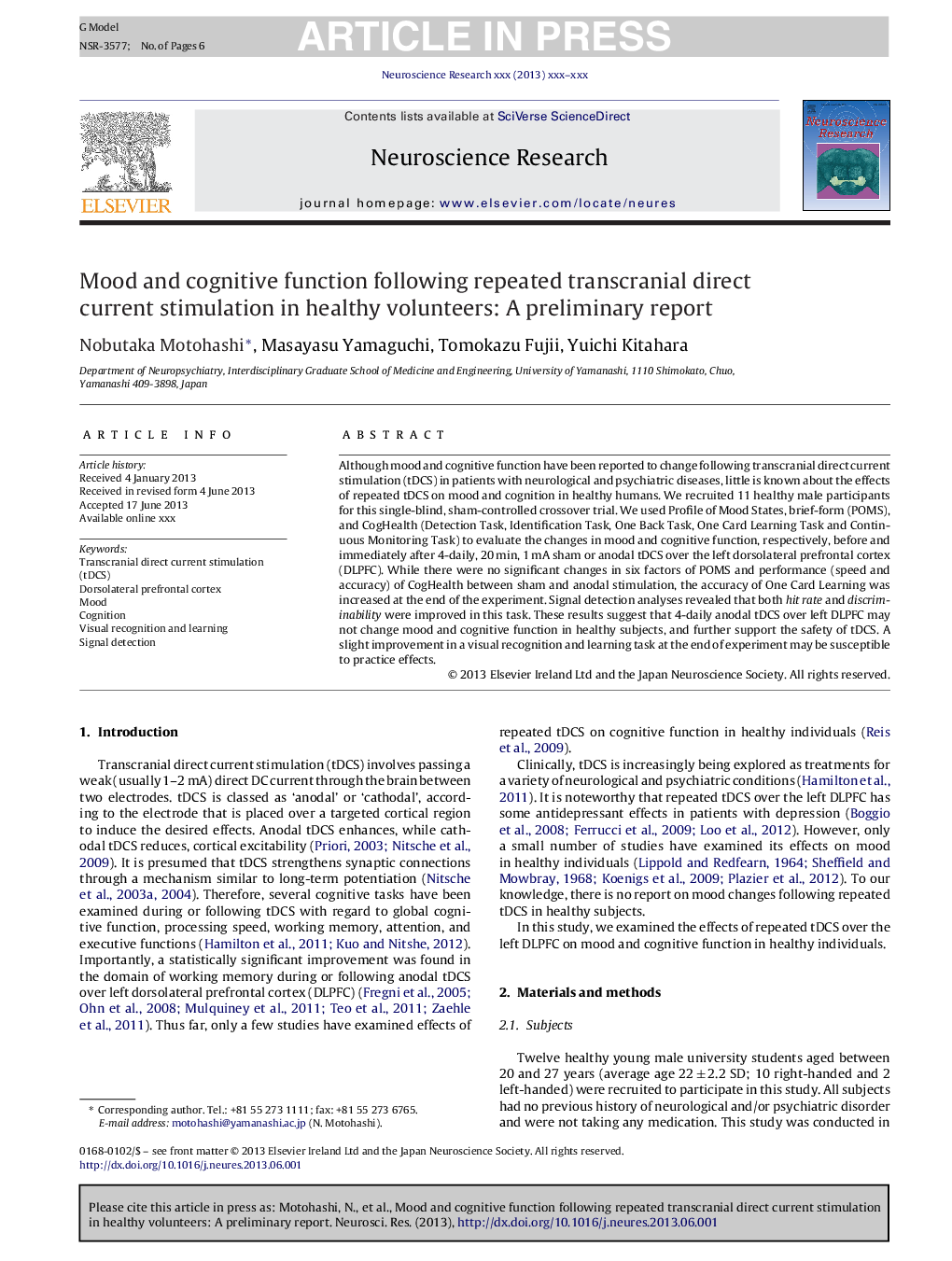| Article ID | Journal | Published Year | Pages | File Type |
|---|---|---|---|---|
| 6286405 | Neuroscience Research | 2013 | 6 Pages |
Abstract
Although mood and cognitive function have been reported to change following transcranial direct current stimulation (tDCS) in patients with neurological and psychiatric diseases, little is known about the effects of repeated tDCS on mood and cognition in healthy humans. We recruited 11 healthy male participants for this single-blind, sham-controlled crossover trial. We used Profile of Mood States, brief-form (POMS), and CogHealth (Detection Task, Identification Task, One Back Task, One Card Learning Task and Continuous Monitoring Task) to evaluate the changes in mood and cognitive function, respectively, before and immediately after 4-daily, 20Â min, 1Â mA sham or anodal tDCS over the left dorsolateral prefrontal cortex (DLPFC). While there were no significant changes in six factors of POMS and performance (speed and accuracy) of CogHealth between sham and anodal stimulation, the accuracy of One Card Learning was increased at the end of the experiment. Signal detection analyses revealed that both hit rate and discriminability were improved in this task. These results suggest that 4-daily anodal tDCS over left DLPFC may not change mood and cognitive function in healthy subjects, and further support the safety of tDCS. A slight improvement in a visual recognition and learning task at the end of experiment may be susceptible to practice effects.
Keywords
Related Topics
Life Sciences
Neuroscience
Neuroscience (General)
Authors
Nobutaka Motohashi, Masayasu Yamaguchi, Tomokazu Fujii, Yuichi Kitahara,
